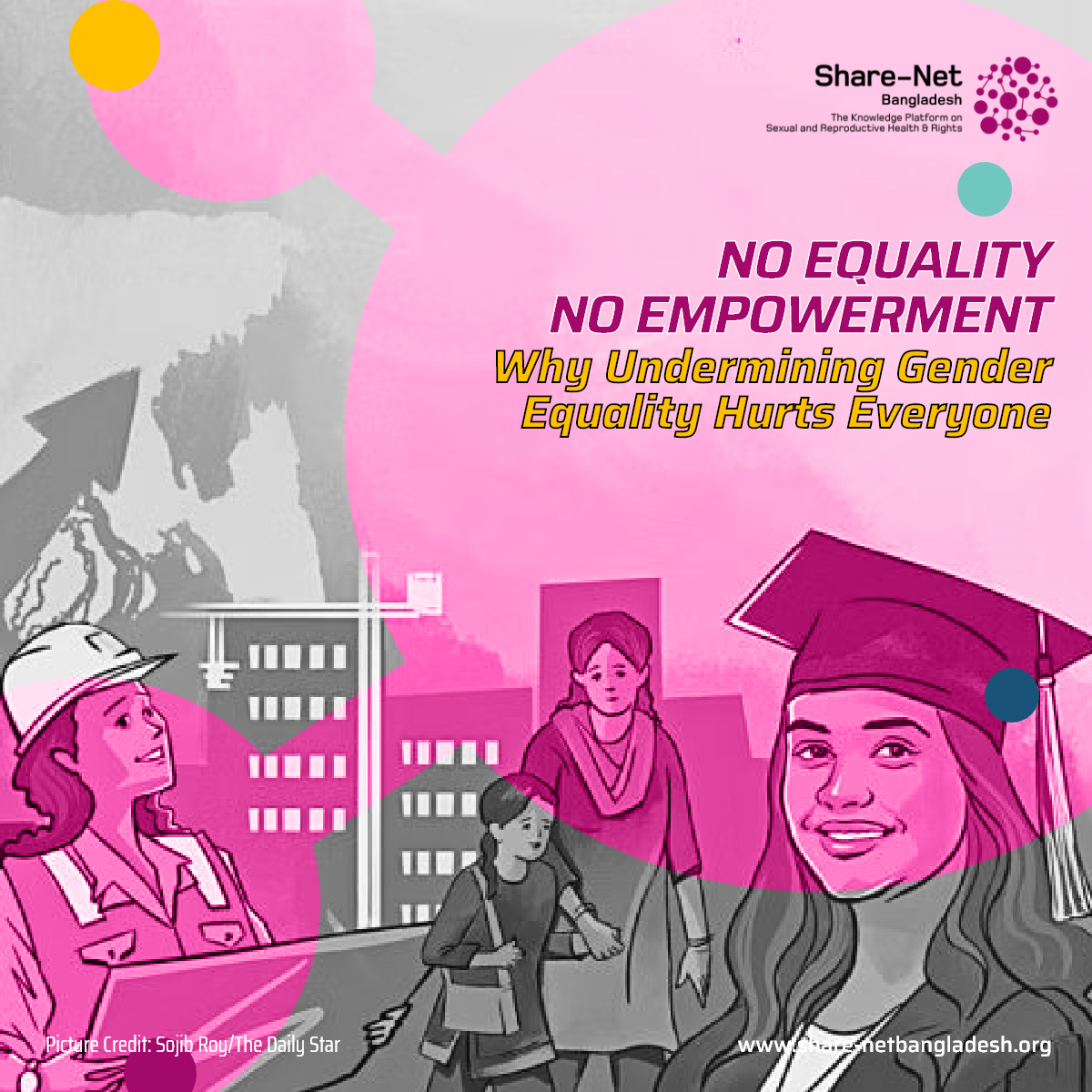No Equality, No Empowerment: Why Undermining Gender Equality Hurts Everyone
At a time when Bangladesh is making strides in economic growth, some alarming narratives are taking root—narratives that challenge the very idea of gender equality. What used to be a foundational demand for justice is now being labelled by some as “unacceptable”. This shift is not only outrageous but also a direct threat to women’s empowerment and the broader agenda for sexual and reproductive health and rights (SRHR).
As pointed out in a recent commentary, “Questioning gender equality implies that inequalities are supported.” That’s not just a political stance—it’s a human crisis.
Despite the constitutional recognition of equality, the reality on the ground tells a different story. Only 14% of working-age women in Bangladesh are in paid employment. Of these, 92% work in the informal sector, often underpaid and without benefits. Just 7% of entrepreneurs in the country are women, and most women who earn still hand over their income to male family members.
This economic disempowerment directly affects women’s autonomy, particularly when it comes to making decisions about their sexual and reproductive health. Without financial independence, choices around contraceptives, pregnancy, maternal care, and family planning remain out of their control. Add to that the staggering 51% child marriage rate, and you get a clear picture of how patriarchy and poverty rob women of agency.
Socially, women face restrictions rooted in patriarchal norms—illiteracy, purdah, lack of mobility, and fear of sexual violence. Only 36% of women have a bank account, while one in two married women has experienced domestic violence, according to the Bangladesh Bureau of Statistics (2016). The result is a cycle of silence, stigma, and suffering.
The backlash against gender equality isn’t just a cultural regression; it’s a systematic effort to control women’s bodies and choices. “Toxic patriarchy turns men into monsters who hold animosity against women,” the source text explains. This toxic mindset is at the core of moral policing, fundamentalist ideologies, and growing violence against women.
So, how do we break this cycle?
First, gender equality must be seen as integral to SRHR. Empowering women to make decisions about their bodies, health, and futures isn’t optional—it’s the cornerstone of development. Policies must not only protect women from violence but also promote access to sexual and reproductive healthcare, education, and economic resources.
Second, men must be part of the change. Patriarchy is not just a women’s issue; it’s a societal issue that affects everyone.
Finally, the state and society must speak with one voice: gender equality is non-negotiable. Empowering women means protecting their rights—not only in law but in everyday life. Because when gender equality is challenged, all of us are disempowered.
Source Contributor: Selim Jahan, former Director of the Human Development Report Office, United Nations Development Programme (UNDP)
Source: The Daily Star
Picture Credit: Sojib Roy/The Daily Star

